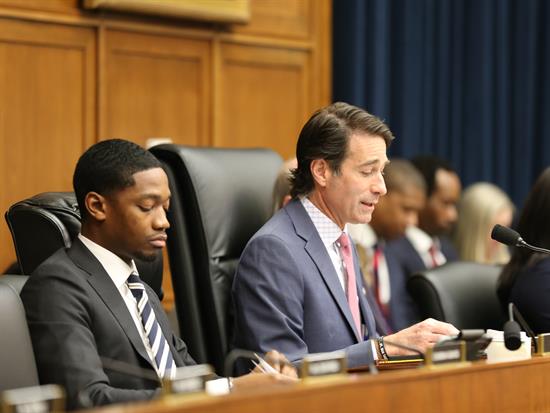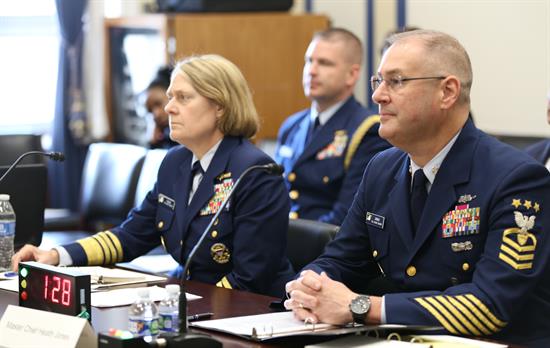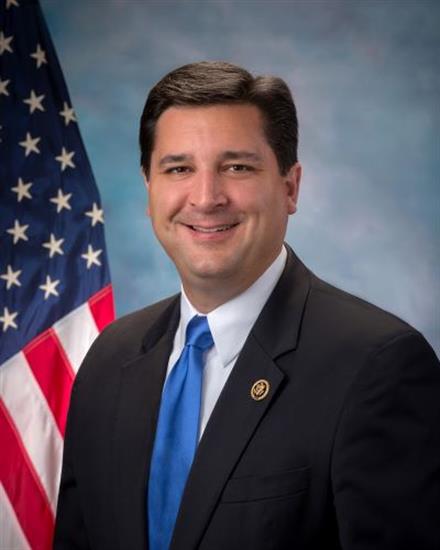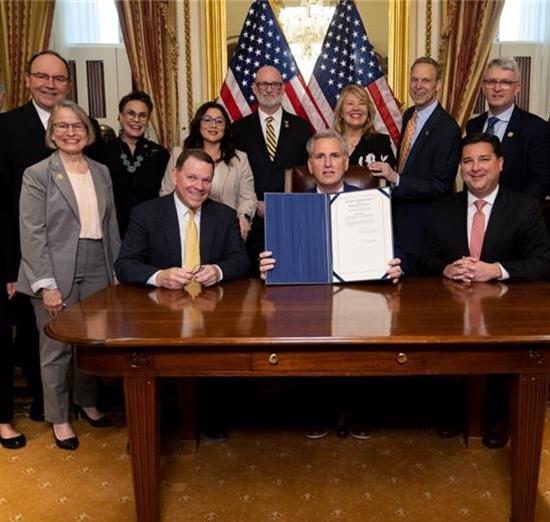
| The Runway: April Recap |
| In this Issue: | |||||
|
Throughout the month of April, the Transportation and Infrastructure Committee was hard at work holding multiple hearings, a full Committee markup, and preparing to advance more of its legislative priorities. April also saw continued debate over the Biden Administration’s “waters of the United States” (WOTUS) rule. H.J. Res. 27, the resolution to overturn the flawed, burdensome Biden WOTUS rule, was first introduced in February by T&I Chairman Sam Graves (R-MO) and Water Resources and Environment Subcommittee Chairman David Rouzer (R-NC). The resolution to stop implementation of this blatant federal overreach passed the House of Representatives and Senate with bipartisan support before President Biden vetoed the resolution on April 6. |
|||
| COMMITTEE ACTIVITY |
|||
FAA Reauthorization
Coast Guard Authorization The Subcommittee on Coast Guard and Maritime Transportation held a hearing focused on the Coast Guard’s budget request for Fiscal Year 2024. Admiral Linda L. Fagan, Commandant of the United States Coast Guard and Master Chief Heath. B Jones, Master Chief Petty Officer of the Coast Guard, testified at the hearing.
Upon introducing the Coast Guard Authorization Act of 2023, full Committee Chairman Graves said: “The men and women of the Coast Guard risk their lives every day to protect our Nation and the lives of those at sea. From assuring the safety of maritime trade through the supply chain crisis, to helping counter undue Chinese influence in the Pacific, to helping to develop the United States’ redefined role in the rapidly changing Arctic, to stemming the human trafficking and influx of illicit drugs into the country, the Coast Guard is challenged with an ever-growing mission set and no growth in their physical infrastructure assets. Our bill ensures the Coast Guard will have the resources and assets necessary to carry out these and its other critical missions,” Coast Guard and Maritime Transportation Subcommittee Chairman Daniel Webster (R-FL) also spoke about the bill, saying: “The United States Coast Guard plays a vital role in protecting our coasts, securing maritime trade by protecting our ports and waterways, responding to emergencies and disasters, and countless other missions. But recruitment challenges and insufficient budgets have stretched the Coast Guard thin at a time its services are at an ever-increasing demand. The bipartisan Coast Guard Authorization Act will provide the resources needed to help with readiness and the Service’s ability to carry out and meet its missions.” On April 26th, the bipartisan Coast Guard Authorization Act of 2023 was approved by the Transportation and Infrastructure Committee during a full committee markup. |
|||
| ON THE FLOOR |
|||
Resolution to Overturn the Biden Administration’s WOTUS Rule In March, the House and Senate held successful bipartisan votes on a resolution to overturn the Biden Administration’s flawed, burdensome WOTUS rule. The Biden rule would lead to sweeping changes to the federal government’s authority to regulate what is considered a navigable water, with enormous impacts on small businesses, manufacturers, farmers, home and infrastructure builders, local communities, water districts, and private property owners. Despite passing the House and Senate with support from Republicans and Democrats, President Biden chose to veto the measure. On April 18, the House of Representatives vote to override the President’s veto ultimately fell short of the two-thirds majority needed to pass. Following the April 18 House vote, Chairmen Graves and Rouzer released the following joint statement: “Despite today’s vote, stopping this overreaching, burdensome WOTUS power grab has the support of bipartisan majorities in both Houses of Congress, and a majority of states have fought to stop its implementation,” said Graves. “This issue matters to everyday Americans all over the country, and I am disappointed to see the President choose radical environmental activists over America’s families, small businesses, farmers, builders, and property owners. As Americans continue suffering under the economic crises caused by the disastrous policies of this Administration, we will not stop working to overturn this incredibly intrusive regulatory expansion.”
On March 30, the House of Representatives passed H.R.1, the Lower Energy Costs Act, upholding Republican’s Commitment to America and to a stronger economy. Chairman Graves joined House Majority Leader Steve Scalise (R-LA), along with Energy and Commerce Committee Chairwoman Cathy McMorris Rodgers (R-WA) and Natural Resources Committee Chairman Bruce Westerman (R-AR), in introducing the bill to tackle the energy crisis caused by President Biden’s disastrous policies.
H.R.1 includes important language which was passed by the Transportation and Infrastructure Committee earlier this year as H.R. 1152, the Water Quality Certification and Energy Projects Improvement Act of 2023. This legislation and critical section of H.R. 1 prevents the Clean Water Act Section 401 process from being hijacked and weaponized to block important energy projects. The Transportation and Infrastructure Committee’s portion of H.R. 1 clarifies the scope of Section 401 permitting, keeping its focus limited to Clean Water Act standards. More information about H.R.1, the Lower Costs Energy Act is available here. |
|||
| REMEMBERING BUD SHUSTER |
|||
At the beginning of the April 26th full Committee markup, Chairman Sam Graves took a moment to honor Bud Shuster and his incredible legacy. Chairman Graves’ remarks honoring the former Chairman are available here. |
|||
| MEMBERS SPOTLIGHT |
|||
Congressman Duarte is a valued member of the House Transportation and Infrastructure Committee. He also serves on the Natural Resources Committee and the Committee on Agriculture. |
|||
| IN THE NEWS |
|||
Transport Topics: House GOP Points to Transportation Record Rep. David Rouzer in The Washington Times: Administration’s new rule muddies water for all Americans |






